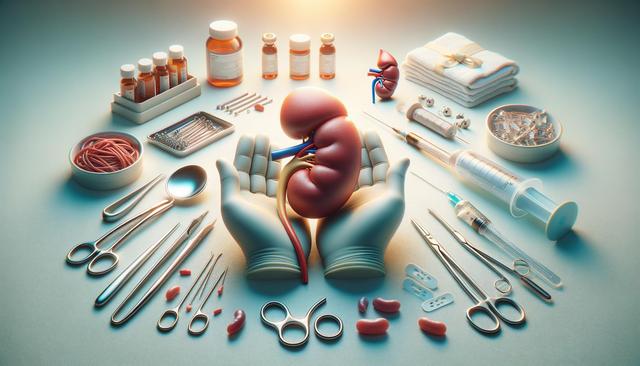Understanding Organ Transplants in America
Organ transplantation has become a life-saving medical procedure for individuals with end-stage organ failure, and kidney transplants are among the most common in the United States. With thousands of patients on the transplant waiting list, understanding organ transplants in America involves both the medical and administrative aspects. The process is tightly regulated to ensure fairness, safety, and optimal outcomes. Kidney transplants are prioritized based on medical urgency, compatibility, and time spent on the waiting list. The allocation system is managed by national organizations that coordinate with hospitals and transplant teams across the country.
Public awareness and education about donation continue to play a significant role in increasing organ availability. Patients, family members, and potential living donors are encouraged to learn about their options and responsibilities. Knowing the broader context of organ donation helps individuals better navigate their own transplant journey and contribute to informed discussions about healthcare policies and ethical considerations.
Kidney Transplant Process in the USA
The kidney transplant process in the USA is a multi-phase journey that typically begins with a referral from a nephrologist. This is followed by a comprehensive evaluation, placement on the transplant list, and eventually, the surgery itself. Each phase involves coordination among healthcare providers, insurance companies, and transplant coordinators.
The process generally includes:
- Referral and initial consultation
- Medical and psychological evaluation
- Approval by a transplant committee
- Placement on the national transplant waiting list
- Preparation for surgery and post-operative care
This process can take months or even years, depending on the availability of a compatible donor. Living donation can significantly shorten the wait time, and many programs now include paired exchange options to increase compatibility matches. Understanding the full scope of the kidney transplant process in the USA helps patients prepare for each stage, from eligibility to recovery.
Guide to Kidney Transplant Clinics
Choosing the right transplant clinic is a critical step in the transplant journey. A comprehensive guide to kidney transplant clinics can help patients evaluate their options based on quality of care, success rates, support services, and location. Clinics vary in size, expertise, and the patient population they serve, so it’s important to research and compare multiple centers before committing to one.
Key factors to consider include:
- Accreditation and experience of the transplant team
- Availability of living donor programs
- Pre- and post-transplant care services
- Support networks for patients and families
- Travel and lodging assistance for out-of-town patients
Many clinics offer informational sessions or patient navigators who can answer questions and provide guidance. It’s also helpful to read patient reviews and consult with your primary care team to ensure that the selected clinic aligns with your medical needs and personal preferences.
What to Know Before a Kidney Transplant
There are several important considerations for patients and families before undergoing a kidney transplant. Being well-informed can reduce anxiety and improve outcomes. What to know before a kidney transplant includes understanding the risks and benefits, the recovery process, and the lifestyle changes required after surgery.
Some of the topics to explore include:
- Potential complications such as rejection or infection
- Medications needed to prevent organ rejection
- Dietary and activity changes post-transplant
- Financial responsibilities and insurance coverage
- Emotional impact and support systems
Patients are encouraged to ask questions during every phase of the process. Many transplant centers offer educational workshops or one-on-one counseling to help individuals and families understand what to expect. Taking this proactive approach can lead to more successful outcomes and a smoother transition to post-transplant life.
Kidney Transplant Evaluation Steps
The evaluation phase is one of the most critical parts of the transplant journey. Kidney transplant evaluation steps involve a thorough assessment of the patient’s overall health, including diagnostic tests, psychological evaluations, and consultations with various specialists. This evaluation determines whether a patient is a suitable candidate for transplant and identifies any risk factors that need to be addressed beforehand.
Typical evaluation components include:
- Blood tests to assess organ function and compatibility
- Cardiac and pulmonary assessments
- Imaging studies like ultrasounds or CT scans
- Social work and psychological evaluations
- Review of current medications and medical history
Patients may also meet with dietitians and financial counselors to plan for the post-transplant phase. Completing these steps thoroughly ensures that the transplant team has all the necessary information to make a safe and informed decision. Delays in evaluation can affect waitlist placement, so timely participation and follow-up are essential.
Conclusion: Preparing for a Successful Kidney Transplant
For anyone facing end-stage kidney disease, understanding the kidney transplant process in the USA is a vital part of planning for the future. From initial evaluations to post-transplant care, each phase of the journey requires informed participation and strong support systems. Following a guide to kidney transplant clinics, knowing what to expect before surgery, and completing the necessary evaluation steps can all lead to better outcomes and improved quality of life.
By staying informed and proactive, patients and their families can navigate the transplant journey with greater confidence and clarity. Whether you’re just beginning to explore your options or are already on the transplant list, knowledge and preparation are key to a successful kidney transplant experience.




Leave a Reply